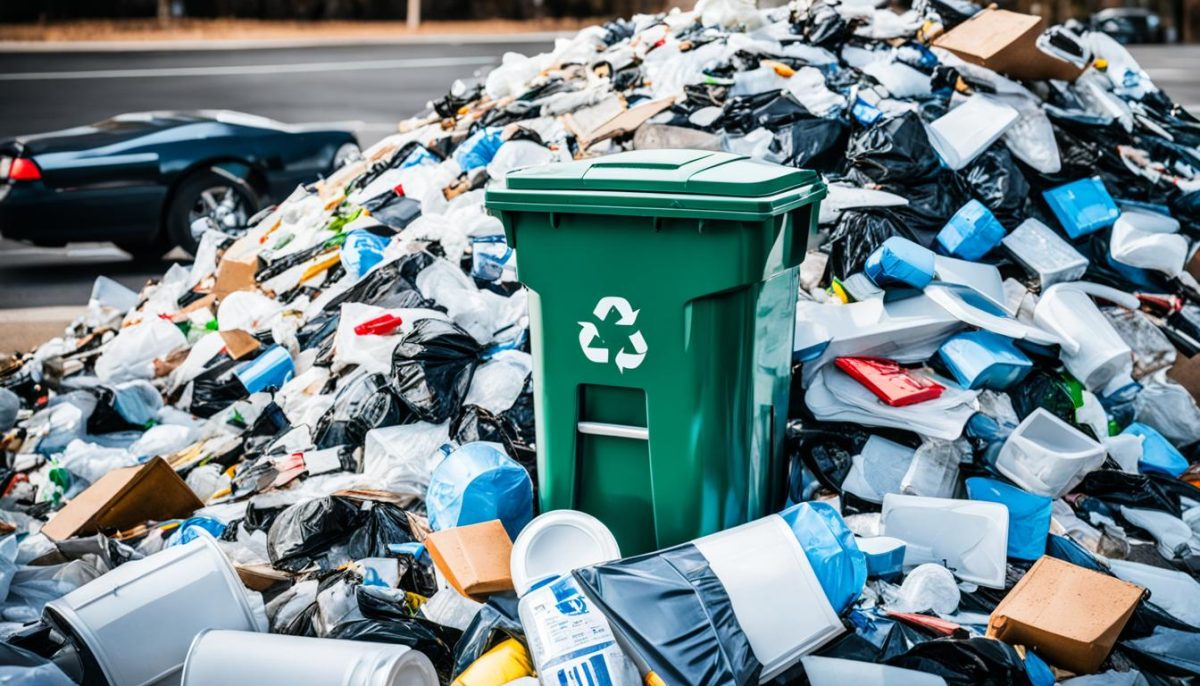
Welcome to the first section of our exploration into the connection between littering and laziness. In this article, we will delve into the reasons why people choose to litter and the detrimental impact it has on our environment. By understanding this link, we can work towards finding solutions to combat this destructive behavior and protect our planet.
Throughout this section, we will examine the consequences of littering and shed light on the urgent need for change. But first, let’s address the question at hand: is littering really about laziness?
Understanding the Psychology Behind Littering
When it comes to the act of littering, there are deeper psychological factors at play that go beyond mere laziness. To truly address this issue, it is crucial to understand the psychology behind littering. By delving into the reasons why people choose to litter, we can gain valuable insights into how to combat this destructive habit and create a cleaner environment.
One of the primary factors behind littering is the convenience mindset. In today’s fast-paced society, individuals often prioritize convenience over environmental responsibility. As a result, they may engage in littering because it is more convenient than finding a proper trash receptacle. This convenience mindset stems from hectic lifestyles, the perception of littering as a minor offense, and a lack of awareness about the detrimental impact of this behavior on the environment.
Furthermore, a lack of personal responsibility also contributes to littering. Many individuals simply do not see the connection between their actions and the consequences for their environment. This mindset leads to a disregard for the impact of littering, as they believe it is someone else’s responsibility to clean up after them. Breaking through this mindset requires education to foster a sense of personal accountability for each individual’s actions.
“Breaking through the convenience mindset and cultivating a sense of personal responsibility are crucial in combatting littering habits.”
Societal norms also play a role in the psychology of littering. If littering is prevalent and socially acceptable in a particular community or culture, individuals are more likely to engage in this behavior without hesitation. Changing societal norms and promoting the importance of clean surroundings can help shift behaviors and reduce littering rates.

Exploring the Motivations for Littering
While laziness is often associated with littering, it is important to note that it is just one facet of the complex psychology behind this behavior. Other motivations for littering include a lack of awareness about the consequences, a disconnect from nature, and a sense of anonymity in public spaces. These factors contribute to a mindset where individuals do not see the immediate repercussions of their actions and are less likely to feel personally responsible for their impact on the environment.
To tackle the issue of littering effectively, it is crucial to address these underlying psychological factors. By promoting environmental education, fostering a sense of personal responsibility, and establishing stricter regulations and penalties for littering, we can create a significant shift in behavior and begin to combat the detrimental effects of litter pollution.
| Factors Influencing Littering | Description |
|---|---|
| Convenience Mindset | The belief that littering is more convenient than finding a proper trash receptacle. |
| Lack of Personal Responsibility | A disconnect between actions and consequences, leading to a disregard for the impact of littering. |
| Societal Norms | If littering is prevalent and socially acceptable, individuals are more likely to engage in this behavior. |
The Environmental Consequences of Littering
Littering may seem like a harmless act, but its environmental consequences are far-reaching. The impact of litter pollution on our ecosystem and overall environmental health cannot be ignored. From urban areas to natural habitats, litter pollution poses a significant threat to wildlife and the delicate balance of our ecosystems.
Litter pollution, caused by the irresponsible disposal of waste, not only tarnishes the beauty of our surroundings but also releases harmful substances into the environment. Plastics, cigarette butts, and other non-biodegradable items can take centuries to decompose, persisting in our ecosystems and causing long-term harm.
As litter accumulates in our rivers, oceans, and forests, it poses a grave threat to wildlife. Marine animals mistakenly consume plastic debris, leading to entanglement, suffocation, and even death. Land animals, birds, and insects can also be harmed by ingesting or becoming tangled in litter. Moreover, the presence of litter disrupts the natural habitats of many species, leading to ecosystem imbalances.
The alarming environmental consequences of littering demand urgent action. By raising awareness about the detrimental effects of litter pollution and advocating for responsible waste management practices, we can work towards mitigating the harm caused by laziness-driven littering. It is crucial for individuals, communities, and governments to come together to protect our planet and preserve the beauty and integrity of our environment for future generations.
